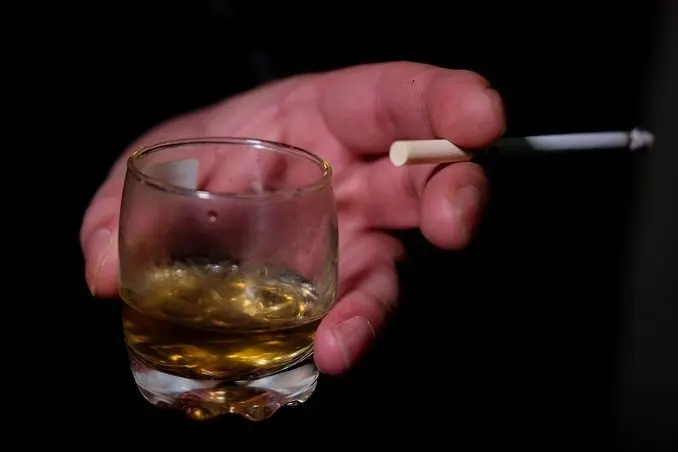Contents
Ex-smokers cite alcohol as one of the main reasons that make it difficult to break the habit. Most of the relapses occur during the use of alcoholic beverages, which causes an irresistible craving for cigarettes. In a state of intoxication, the desire to smoke occurs even in those who do not suffer from nicotine addiction. The answer, why alcohol makes you want to smoke, was given by American scientists from Duke University, who conducted a study in the fight against tobacco addiction in the United States.
How do ethanol and nicotine interact?
The prerequisites for the experiment were the data of statistical surveys, which showed a close relationship between alcohol and tobacco use. The results showed that smokers drink more and are more likely to suffer from alcoholism. On the other hand, alcohol provokes an increase in the average daily number of cigarettes smoked and makes it difficult to fight bad habits.
For a long time, the pharmacological mechanisms of the interaction between ethanol and nicotine have been insufficiently studied. Scientists at Duke University conducted a study based on a number of established facts. Nicotine has previously been shown to block the sedative effect of ethanol and relieve the feeling of drowsiness when intoxicated. This effect is due to the fact that both substances act on the same part of the brain responsible for the production of the alertness hormone acetylcholine. In addition, ethanol and nicotine alone have been known to induce a state of euphoria by stimulating the release of dopamine.
A group of researchers led by Jed Rose in 2004 conducted an experiment in a group of 48 smokers who consumed alcohol at least four times a week. Each of them was offered alcohol or a placebo – a drink that mimics alcohol. At the same time, volunteers smoked cigarettes with and without nicotine.
Participants in the experiment noted that the combination of alcohol with nicotine increased the state of relaxation and euphoria. At the same time, smoking simulated cigarettes did not give such an effect. The published results of the study emphasized that the pleasure of nicotine is enhanced even when taking small doses of alcohol, insufficient for intoxication.

Scientists concluded that the mechanism of interaction between alcohol and nicotine contributes to their joint use. It is for this reason that relapse occurs in those who try to quit smoking. The data obtained became the basis for the widespread use of Mecamylamine in the treatment of tobacco dependence.
The drug is included in the group of nicotine antagonists, prevents the production of dopamine and significantly reduces the pleasant sensations of smoking while intoxicated. Further clinical trials of Mecamylamine showed that it not only relieves cravings for nicotine, but also for alcohol. The drug is used in the US as an adjuvant therapy for smoking cessation. In Russia, the drug is not used for this purpose, since it is contraindicated at low pressure and is usually prescribed in the treatment of hypertension.
How the combination of ethanol and nicotine affects the brain
In 2019, a report from the American Chemical Society was published examining the negative effects of combined tobacco and alcohol use. The experiment was carried out on rats that breathed tobacco smoke and received ethanol for 28 days. The scientists then studied the brains of rodents and found a decrease in neurotrophic growth factor, which helps neurons survive and renew themselves.
The results show that smoking in combination with alcohol increases the risk of damage to the nervous system.
Attention! Self-medication can be dangerous, consult your doctor.









